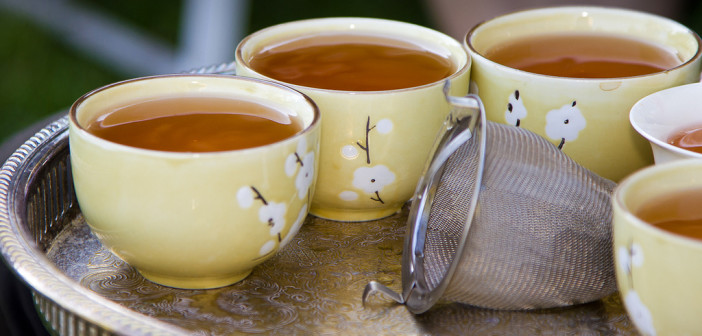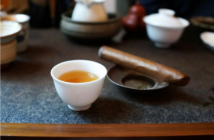Whether you call them Oolongs, Wulongs or Black Dragon Teas, Oolongs are one of the 5 Basic Tea Types
If you’ve ever eaten in a Chinese restaurant, chances are you’ve enjoyed a fragrant cup of the “Black Dragon”. Oolongs originated in China; they are bolder than green tea and lighter than black. And like all tea varieties, they are credited with an amazing number of health benefits.
THE BASICS
- All tea comes from just one plant- Camellia sinensis.
- There are 5 main types of tea- White, Green, Oolong, Black and Pu erh
- The level of oxidation determines tea type
- White and Green teas are unoxidized, Oolongs are partially oxidized, Black and Pu erhs are fully oxidized
WHAT IS OXIDATION?
Oxidation is the chemical reaction that takes place when harvested tea leaves react with oxygen in the air. Oxidation changes the taste, aroma and appearance of the leaves. As a rule of thumb, less oxidized teas are lighter in color and flavor, whereas highly oxidized teas are darker in color and bolder in flavor.
HOW OOLONGS ARE MADE
Oolongs are made from partially oxidized leaves. The leaves are tossed in bamboo baskets to lightly bruise the edges so that the outer part of the leaf is oxidized while the center is left green. The leaves are then roasted.
While all oolongs are processed similarly, the degree of oxidation varies greatly- anywhere from 8% to 85%-creating a wide spectrum of flavor profiles, aromas and color characteristics. This is the reason you can find oolongs ranging from smoky, sweet and fruity, to woody and thick, or vegetal and fresh.
Most Oolongs are produced in China and Taiwan. Traditionally, Chinese Oolongs are less oxidized (12-20%), producing a lighter tea, while Taiwanese Oolongs undergo a longer oxidation (60-70%) for a stronger flavor.
HEALTH BENEFITS OF OOLONG TEA
Oolongs share many of the same health benefits as the other four types of tea. Although more research needs to be done, there is mounting evidence that tea may have a positive effect on:
- Lowering cholesterol
- Increasing mental focus
- Boosting metabolism
- Stabilizing blood sugar
- Preventing tooth decay
- Preventing osteoporosis
- And much more
Photo by Jean Francois Renaud/Flickr CC
note that this post was previously published on april 16, 2015




